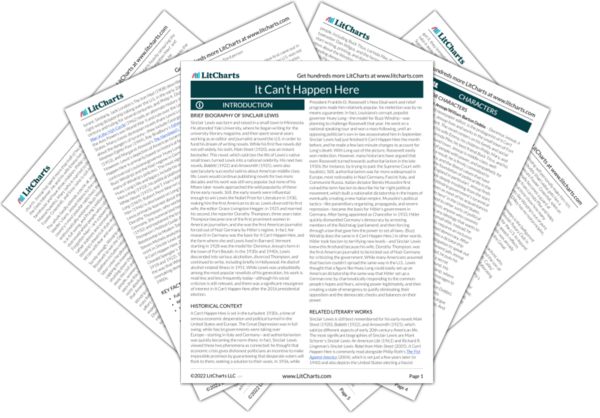Judge Swan’s extremely formal, theatrical personality again shows how fascism uses style to mask substance. Just like Windrip, Swan uses a phony persona to distract from the reality that he uses his extreme power to arbitrarily strip people of their rights, property, and dignity. In fact, he doesn’t seem to care or understand anything about Jessup’s “trifling” case—even though he has absolute power to decide the fate of Jessup’s life and newspaper. Thus, Swan again demonstrates the terrifying combination of cruelty and ignorance that Lewis sees at the heart of fascism.
